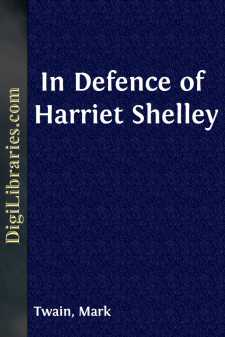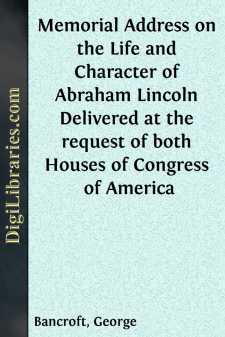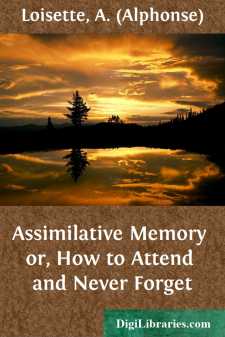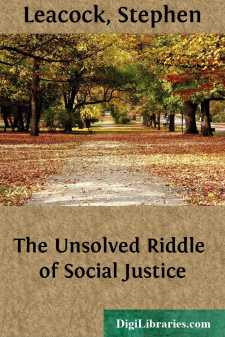Non-Classifiable
- Non-Classifiable 1768
Non-Classifiable Books
Sort by:
by:
Mark Twain
I have committed sins, of course; but I have not committed enough of them to entitle me to the punishment of reduction to the bread and water of ordinary literature during six years when I might have been living on the fat diet spread for the righteous in Professor Dowden's Life of Shelley, if I had been justly dealt with. During these six years I have been living a life of peaceful ignorance. I...
more...
by:
George Bancroft
ORATION. SENATORS, REPRESENTATIVES OF AMERICA: That God rules in the affairs of men is as certain as any truth of physical science. On the great moving power which is from the beginning hangs the world of the senses and the world of thought and action. Eternal wisdom marshals the great procession of the nations, working in patient continuity through the ages, never halting and never abrupt,...
more...
SCOUTING AND THE SCHOOLS. Scouting continues to enjoy the cordial indorsement of school men everywhere all over the country. More and more those interested are coming to see the enormous possibilities of cooperation between the scout movement and the schools. Many schools now give credit for scout work done outside of the schools. Many more are in hearty sympathy with the program as an extraschool...
more...
henry of monmouth's accession. — national rejoicings. — his profound sense of the awfulness of the charge devolved upon him. — coronation. — first parliament. — habits of business. — he removes the remains of richard to westminster. — redeems the son of hotspur, and restores him to his forfeited honours and estates. — generous conduct towards the earl of march. — parliament at...
more...
by:
Lewis Wright
CHAPTER I INTRODUCTORY Lantern Projection, as commonly understood, may be broadly subdivided into two branches: (A) The Projection of Lantern Slides, and (B) The Projection of Scientific Phenomena, Opaque Objects, Microscopic Specimens, &c., usually referred to broadly under the heading of 'Scientific Demonstration.' To these two classes may perhaps now be added a third, viz. The...
more...
by:
Confucius
THE ANALECTS BOOK I On LearningвÐâMiscellaneous Sayings:вÐâ "To learn," said the Master, "and then to practise opportunely what one has learntвÐâdoes not this bring with it a sense of satisfaction? "To have associates in study coming to one from distant partsвÐâdoes not this also mean pleasure in store? "And are not those who, while not...
more...
IRELAND AND POLAND The United Kingdom is composed of four distinct nationalities. Each of these has retained its own distinct character, its own national history, its own patriotism and self-respect. Their affairs, great and small, general or local, are administered by one Parliament in which each is fully represented. A large majority of the Irish people have, however, asked that in addition to some...
more...
FUNDAMENTAL PRINCIPLES. What is the basic principle of my system? It is, Learn by Thinking. What is Attention? It is the will directing the activity of the intellect into some particular channel and keeping it there. It is the opposite of mind-wandering. What is thinking? It consists in finding relations between the objects of thought with an immediate awareness of those relations. What is the Sensuous...
more...
by:
Stephen Leacock
THESE are troubled times. As the echoes of the war die away the sound of a new conflict rises on our ears. All the world is filled with industrial unrest. Strike follows upon strike. A world that has known five years of fighting has lost its taste for the honest drudgery of work. Cincinnatus will not back to his plow, or, at the best, stands sullenly between his plow-handles arguing for a higher wage....
more...
by:
John F. Runciman
LIFE OF WAGNER HIS YOUTH 1813-1834. The old world is very remote from us now, but it is worth while making a small attempt to realize how it stood to Wagner. When he was born, in 1813, Bach had been dead only a little over sixty years; Mozart had been dead about twenty years, and Haydn about ten; Beethoven was in the full splendour of his tremendous powers; Weber and Schubert had still their finest...
more...











